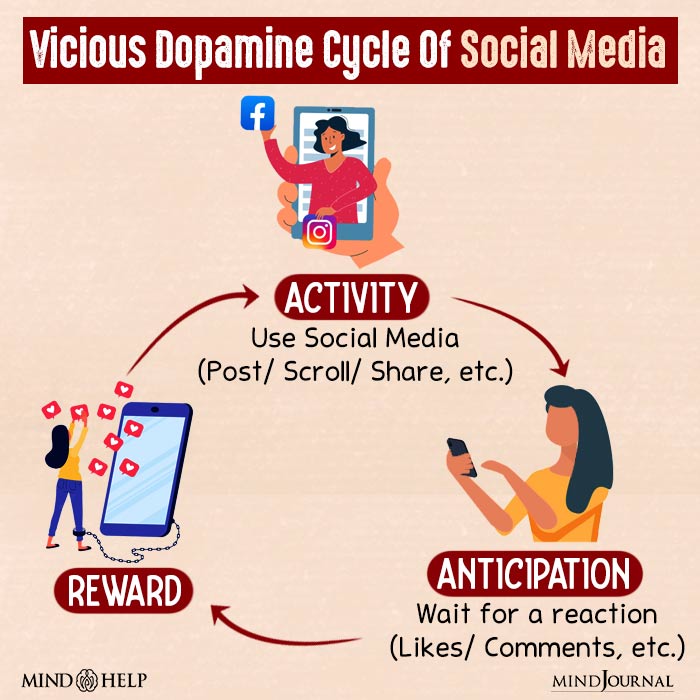The Architecture of Spectacle: A Multidisciplinary Analysis of the Psychology, Sociology, and Ontological Impact of Reality Television


@jorgebscomm for @empowervmedia*
FACT CHECKED ✅
Social media has become an undeniable force in our lives, offering connection, entertainment, and information at our fingertips. However, alongside its many benefits lies a potential undercurrent affecting our mental wellbeing: the pursuit of online validation through likes, shares, and interactions. This article delves deeper into the complex relationship between social media engagement and mental health, drawing insights from evidence-based research and critical perspectives.
 |
| The pursuit of online validation can affect our mental wellbeing 📷 truththeory |
• Increased anxiety: The constant need to check notifications and anticipation of responses can fuel anxiety, impacting daily life and sleep patterns. Studies published by the Journal of Communication Technology have shown a correlation between frequent social media use and symptoms of generalized anxiety disorder, characterized by excessive worry and difficulty controlling it.
• Low self-esteem: Comparing oneself to curated online personas can lead to feelings of inadequacy and decreased self-worth, particularly for vulnerable individuals like teenagers and young adults. Research by Rachel Mann and Fran Blumberg indicates that social media use, particularly comparing oneself to others online, can negatively impact body image and self-esteem in adolescents.
• Fear of missing out (FOMO): The constant exposure to seemingly perfect lives portrayed online can trigger FOMO, fostering feelings of isolation and dissatisfaction. Studies by Masaryk University highlight the association between FOMO and social media use, suggesting that individuals who frequently compare themselves to others online are more likely to experience FOMO and its negative consequences on well-being.
The quest for validation on social media is not merely a social phenomenon; it has a neurological basis. When we receive likes and positive online interactions, our brains release dopamine, a neurotransmitter associated with pleasure and reward. This positive reinforcement loop can lead us to crave more online validation, potentially fuelling a cycle of compulsive social media use and dependence on external validation.
 |
| 📷 mindhelp |
Harvard University's Dr. Shoshana Zuboff, in her book "The Age of Surveillance Capitalism," argues that social media platforms function through a system of "prediction and manipulation". User data, including likes, shares, and browsing behaviour, is collected and analysed to predict our preferences and target us with personalized content and advertisements. This manipulation can exacerbate the desire for validation and potentially contribute to negative mental health outcomes. Zuboff argues that these platforms exploit our psychological vulnerabilities, including the need for social connection and validation, to keep us engaged and generate profit.
While acknowledging the potential pitfalls, it's important to remember that we have agency over our social media experience. Here are some strategies to foster a healthier relationship with these platforms:
• Be mindful of your consumption: Set time limits for social media use and avoid compulsive checking. Utilize app timers or tools that limit daily screen time on social media platforms.
• Curate your feed: Follow accounts that inspire, educate, and uplift you, while unfollowing those that trigger negativity or promote unrealistic comparisons. This allows you to create a more positive and supportive online environment.
• Focus on real-life connections: Prioritize face-to-face interactions and nurture authentic relationships that contribute to overall well-being. Engaging in meaningful interactions with friends, family, and loved ones can provide a sense of belonging and support that social media may not fulfil.
• Engage authentically: Post content that reflects your genuine self, and prioritize meaningful interactions over chasing "likes." Authenticity fosters genuine connections and reduces the pressure to conform to unrealistic online personas.
• Seek professional help if needed: If you find yourself struggling with social media addiction or its negative impacts on your mental health, don't hesitate to seek professional help. Therapists can help develop coping mechanisms and healthy social media habits.
 |
| Nurturing real-life connections and relationships can provide a sense of belonging and support 📷 adagio30a |
Remember, your self-worth is not defined by online metrics. By approaching social media consciously and prioritizing genuine connections, we can leverage its benefits while safeguarding our mental well-being.
*AI assisted
Comments